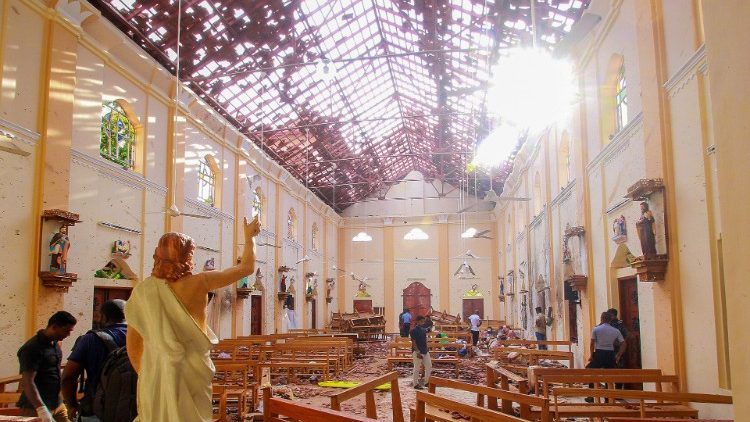“I hope we will all become part of the short- and long-term solution,” Archbishop Bernardito Auza, the Holy See’s Permanent Observer to the United Nations in New York, urged on Monday at an event on countering terrorism and other acts of violence against all religious believers by fostering a culture of tolerance and inclusivity.
Condemning several attacks against Jews, Muslims, Christians and other religious believers, and especially mentioning the recent terrorist attacks on “Easter Worshippers” in Sri Lanka, he noted that their houses of worship became “execution chambers”.
He said that merely condemning these attacks is not enough. “There is a need to focus on the responsibility and actions of states to protect all of their citizens equally as well as to address with vigour the cultural factors necessary to promote tolerance and inclusivity.”
The Holy See diplomat suggested several ways of how to go about it. He said that tolerance and inclusivity are achieved through a robust promotion of the right to freedom of conscience, religion and belief. Unfortunately, he noted that reports reveal that several states with an official state religion have various levels of restrictions on other religions. Some reports also documented “increasingly aggressive forms of nationalism hostile to religious minorities.”
Even in places where one religion is accorded special constitutional status, Archbishop Auza urged for guaranteeing the equality of all citizens before the law, regardless of their religious or ethnic identity, as a basic demand of justice.
While urging for a positive and respectful separation of religion and state, he said the two spheres should collaborate for the good of all citizens.
The Vatican official underscored the need for all political, social and religious leaders to condemn the use of religion to incite hatred and violence or to justify acts of oppression, exile, murder or terrorism. At the same time, he pointed out, religions themselves should not be blamed for violence and killing but one should blame those who “misinterpret or manipulate religious belief to commit evil, supposedly in God’s name, for political or ideological purposes.”
Archbishop Auza insisted that all terrorist attacks against all religions and places of worship must be condemned unequivocally, including Islamophobia, anti-Semitism and Christianophobia.
The Vatican official encouraged a real commitment to intercultural and interreligious dialogue and called for an effective education of “the head and the heart”, especially of young people, ensuring that schools, pulpits and the internet do not foment intransigence and extremist radicalization.
ENDS
Source: Vatican News


